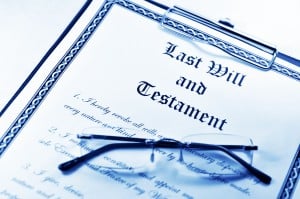
Ed. note: This is the latest installment in a series of posts on motherhood in the legal profession, in partnership with our friends at MothersEsquire. Welcome R.B. Guard to our pages. Click here if you’d like to donate to MothersEsquire.
As I walked along the ocean’s edge, my feet in the cool, damp sand, I watched the ocean remake and renew itself over and over again, and in doing so, it changed the environment around it. These morning walks are few and far between; I am here with my family for a few precious days each summer, a few carefully guarded vacation days that are, nonetheless, usually interrupted by the call of work.
But just a few weeks ago, I was far from this ocean, lying in a hospital bed in the Cedar-Sinai Medical Center where I had just been admitted. No, I was not in the hospital because of coronavirus, nor was I being hospitalized for drinking too much or taking too many pills.
Except that I was there, sort of, because of coronavirus. And, it turns out, I was drinking too much and taking too many pills, only I was drinking too much coffee and taking too much Advil, along with maxing out on triptans, the medicines prescribed for me to try to ease the pain of my chronic back pain. I took the Advil to try to numb the pain of my nervous system screaming at me, and I drank the coffee to try to feel un-numb again, awake, present.
Internally, I felt like the coffee I drank too much of — filled to the very brim, facing each day ready to boil over at any minute.
Like many lawyers, I am a Type A personality, setting high expectations for myself and then attempting to surpass them. And like many women, I have been sugar and spice and everything nice, because that’s what little girls are made of, right? I have used the “Goods” and the “Shoulds” as a roadmap for my life. How would a good lawyer handle this? What would a good mother say? What would a good sister do? A good friend? Wife? Daughter?
And Good’s helper, Should, answered those unanswerable questions for me. You should bill more hours; a good lawyer would. You should volunteer for that school committee; a good mother would. You should be thinner; all good women are. You should, you should. And I did, or at least I tried.
And that brimming, burning cup of coffee got hotter, and fuller, and overflowed with each new Good and Should.
Perhaps then, it is not surprising that the pandemic sent my already chronic back pain spinning out of control. This trip to the hospital was not the first one for my condition; I had been in the hospital many times in previous years, but the prior visits were all outpatient infusions and one day here and one day there. Not this time, though. This time, I was being admitted for almost two weeks, which meant actually taking time off work (although I might have taken a call or two) and even leaving my husband and kids at home without me.
But my identity has been wrapped up for a long time in doing it all. And yet something as stigmatized and underestimated as back pain threatened to undo that identity, to take all of it away. In prior hospitalizations, I would post pictures of myself hooked up to an IV in a small hospital room, my laptop propped open in front of me, with sayings like, “The pain may be tough, but I’m tougher.” But then the pandemic hit.
In March and April, I had managed to bill strong months, even while assisting my kids with online school and trying to keep their spirits up. I checked in on my parents and in-laws to make sure they were staying safe, did a couple of virtual conferences, brought in new clients, and dutifully logged in to virtual parent-coffees offered by my daughter’s schools.
But I could feel the dark vacuum of pain sucking me in. The pain would enter the periphery of my vision and close in on me until my world looked like it was broken, like looking through shattered glass. My bedroom became my continual refuge, lying in my bed with my eyes squeezed shut to let my brain try to rest, exhausted by chronic pain.
That pain was not the real enemy; it was merely a symptom. My body’s way of telling me … my brain’s way of forcing me … to stop, take inventory, get some perspective. The constant pressures of our profession, the drive to bill more hours, the around-the-clock needs and demands of clients about whom I care deeply, the drive to bill more hours, despite the ensuing chaos swirling around us, were the real culprit as they interweaved with my internal perfectionism and drive.
So, as I sat in that hospital bed, detoxing from Advil and too much coffee, hooked to yet another IV, new medicines dripping endlessly and coursing through my veins, I began to get clearer. The fog began to break apart, the aura prism retreating. I could see again, both literally and figuratively, and I could especially see that I could not continue to treat myself as if I am dispensable, indestructible. Instead of ignoring and numbing the pain, instead of saying, “Oh, I am fine,” I needed to pay attention to the pain, listen to what it was furiously whispering to me, begging me to hear.
“You are already enough,” it was saying, the sharp echo of each word vibrating down each of my neural pathways. “There’s nothing more you need to prove.” The lawyer in me wanted to argue, to come to the defense of Good and Should. But the mom in me tried hard to listen, lovingly and with compassion, the kind of caring listening that I would offer my children, my husband, a friend.
“Wellness” and “mindfulness” have become trendy words in the legal profession, and yet, like other words — diversity, inclusion, equity — they are thrown around like saying them, or posting about some related initiative on a law firm website, will suffice. Most lawyers give little thought to the real and vast consequences of what un-well and mind-less-ness look like. Lawyer wellness means lawyers who are whole humans, with lives and families, and passions — lawyers who are connected to their friends and communities and still remember what it means to work for justice.
Lawyer wellness, to be meaningful and effective, will require breaking systems apart and putting them back together. Lawyer wellness encompasses diversity and inclusion efforts, gender equity, and preventing motherhood penalty, initiatives that encourage healthy behaviors and get rid of broken ones that lead to depression, substance abuse, and … wait for it … chronic overwork.
When I left that hospital bed, I was determined to also leave behind habits that rewarded and sustained being an un-well lawyer. No more Advil (I have the right medicines to use now), and more time exercising and committing to a meditation practice, taking time to listen to my body before it reaches its breaking point. Oh, and … this one hurts … no more coffee.
And maybe, with less coffee going in, I can stop feeling like that brimming, boiling cup of coffee. Maybe instead, I can be like the ocean in the early morning, breathing in and breathing out, renewing and remaking myself according to my own internal voice, and hopefully changing the world around me for the better as I do.



 Jill Switzer has been an active member of the State Bar of California for over 40 years. She remembers practicing law in a kinder, gentler time. She’s had a diverse legal career, including stints as a deputy district attorney, a solo practice, and several senior in-house gigs. She now mediates full-time, which gives her the opportunity to see dinosaurs, millennials, and those in-between interact — it’s not always civil. You can reach her by email at
Jill Switzer has been an active member of the State Bar of California for over 40 years. She remembers practicing law in a kinder, gentler time. She’s had a diverse legal career, including stints as a deputy district attorney, a solo practice, and several senior in-house gigs. She now mediates full-time, which gives her the opportunity to see dinosaurs, millennials, and those in-between interact — it’s not always civil. You can reach her by email at 


















 Olga V. Mack is the CEO of
Olga V. Mack is the CEO of 






 Jordan Rothman is a partner of
Jordan Rothman is a partner of